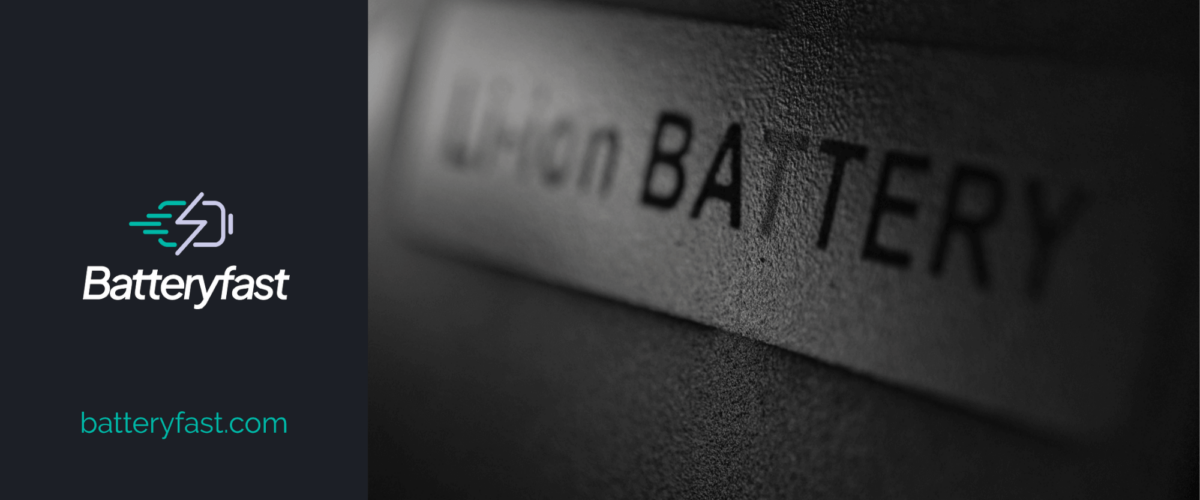Introduction
Lithium-ion and Lithium-Polymer cells are both rechargeable batteries used in portable electronic devices. From laptops to cellphones, either type might be used. To understand the differences between the two, it is important to know what a cell consists of.
A lithium rechargeable cell has four components:
- Cathode – stores energy from outside sources, like chargers or cables.
- Anode – stores energy when other cells discharge.
- Separator – prevents direct contact between the cathode and anode, and allows ions to flow from one side to the other during charging or discharging cycles.
- Electrolyte solution – provides a medium for ions to move between electrodes.
Depending on which components are used to make it, a cell is classified either as Lithium-ion or Lithium Polymer.
Definition of Lithium Ion and Polymer Batteries
Lithium-ion batteries are rechargeable, with lithium ions moving between the negative and positive electrodes during discharge and charging. Graphite (carbon) is the electrode material used.
Polymer batteries, also known as plastic or polymer lithium-ion cells, use an organic polymer electrolyte instead of liquid electrolyte. Fire resistance is greater with this technology, and leakage risk is reduced. Self-discharge rates are very low and charging is fast. Various sizes and charge capacities (10mAh to 100Ah) are available.
Compared to other rechargeable batteries, such as lead acid, nickel metal hydride, or zinc air-based designs, polymer cells have higher energy densities. Plus, they can provide higher discharge current ratings for the same size battery.
Advantages and Disadvantages of Lithium Ion Batteries
Li-Ion batteries provide more power for less weight than other rechargeables. They keep their charge for long periods and don’t need special maintenance. But they take a while to charge and are pricey. Plus, they contain toxic materials, and can combust if overheated or short-circuited.
LiPo batteries are smaller and lighter with a flexible form factor. They may also have safety features like voltage monitoring, and they’re cheaper when big capacities are needed. But they require more complex circuitry and balancing to avoid breakdowns, plus extra safety measures when dealing with faulty devices and overcharging.
Advantages and Disadvantages of Polymer Batteries
Polymer batteries are a unique type of rechargeable lithium-ion battery. They are made of lightweight and flexible polymers instead of heavy metal cases. This type of battery is becoming more popular due to its lighter weight and increased safety. It also has long shelf life, low self-discharge rates, and can be formed into any shape.
Advantages:
- Cost effective.
- Lightweight.
- Flexibility.
- Enhanced safety features.
- Longevity.
Disadvantages:
- Limited cycle life.
- High manufacturing cost.
Cost Comparison of Lithium Ion and Polymer Batteries
Li-ion and Li-polymer batteries have different prices. Generally, Li-ion batteries are more expensive than Li-polymer. This is because Li-polymer needs a thinner and lighter pouch cell, while Li-ion needs a cylindrical cell. The chemistry of each battery also affects cost. Li-ion needs more expensive chemicals compared to Li-polymer.
It’s important to consider energy density and total energy capacity when buying batteries. This is great for cost savings. Electrode design is important too. High power density batteries allow for smaller form factors, meaning savings.
Both batteries are good choices for small devices like cell phones. For more demanding applications like electric vehicles or solar installations, Li-ion may be best due to their longevity benefits.
Applications of Lithium Ion and Polymer Batteries
Li-ion batteries are found in everyday gadgets. They are light and offer high energy density and can be charged hundreds of times. Li-Poly or LiP batteries provide similar performance, and they have an advantage: they can be made into thin and flexible sheets instead of thick cylinders. They are also safer, as they swell and deform if overcharged or heated up, with no effect on performance.
Both types of batteries must be monitored for safety. They can be used for portable power tools, robotics, low voltage auto electronics, and security device backup power.
Safety Considerations
Lithium-ion batteries are typically seen as safer than other battery types, such as Nickel-Cadmium, Lead Acid and Lithium Polymer. Yet, they can still explode or catch fire if the device is damaged or overcharged due to their liquid electrolytes reacting with air. In contrast, LiPo batteries contain solid electrolytes, which protect against short circuits and offer better protection against thermal runaway conditions.
Additionally, LiPoly is made of flexible packaging, which could be able to handle more physical abuse than the rigid lithium-ion casing.
For optimal safety, it’s essential to use professional grade chargers with either type of battery. Ensure that the charger has CE certification and you double check the model compatibility before using it.
Conclusion
Comparing lithium ion and polymer batteries can be complex. The best option for you depends on costs, capacity, and recharge times.
Lithium ion batteries offer longer lifespans and higher capacities. They are great for long-term storage and extensive use. They may need extra protection in extreme temperatures and regular maintenance. But, they offer consistent performance at an affordable price.
Polymer batteries are more durable than lithium ion. They have improved safety features and fast charging times. Additionally, they are light and cost less. If you need portability without sacrificing power, a polymer battery might be your best bet.
Frequently Asked Questions
Q: What is the difference between lithium ion and polymer batteries?
A: Lithium ion batteries use a liquid electrolyte whereas polymer batteries use a solid-state electrolyte. Lithium ion batteries are generally more powerful and have higher energy densities, while polymer batteries are generally lighter and have better safety features.
Q: Which type of battery is better suited for powering a laptop?
A: Lithium ion batteries are typically better suited for powering a laptop due to their higher energy density. They can store more energy in a smaller package than polymer batteries, making them a better choice for laptop applications.
Q: Are there any disadvantages to lithium ion batteries?
A: Lithium ion batteries can be more expensive than polymer batteries and have a shorter lifespan due to their higher energy density. Additionally, they are more prone to overcharging and can be more dangerous if not handled properly.

